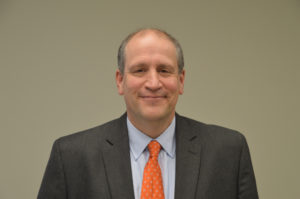Kibort is hardly a new face around the camp’s St. Louis Park offices. He came on board in 2006 as business manager and grew that role to be director of operations, which included overseeing the rebuilding of Herzl. In 2013 he and Drea Lear were named interim co-directors for last summer. Lear is the camps associate director, a title that Kibort said is more prevalent in the camping world than “director of camp.”
So four months after trying to arrange this sit down, and with buses full of campers heading for Webster, Wis., less than two months from now, Kibort sat down with TC Jewfolk to discuss his time at Herzl so far and what he sees for the camp’s future.
TC Jewfolk: What has been the biggest challenge since you joined the Herzl staff?
Gary Kibort: Facilities. A lot of camp was 75 to 100 years old. We had to rebuild camp, not change it. Most of the people who had been to Herzl prior to the rebuild felt that we did that. We knew that to remain competitive, we had to upgrade our facilities. That’s why we spent five years and raised $8 million to build 40 new buildings.
TCJ: Is the rebuilding done?
GK: It’s never done. We should be able to add something each year, and that’s my goal: To say ‘Here’s something new.’
TCJ: So what’s new this year?
GK: A radio station. It will be able to serve as a chug for those who want it, or for cabin oriented activities. We didn’t build anything new this year, but there’s always stuff coming.
TCJ: How has your approach changed?
GK: The camp industry is changing quite rapidly. The way things were done just 5 years ago are often accomplished quite differently today. We weren’t doing online registration then, posting pictures online or using social media. We are making every effort to continually evaluate everything we do on all levels of the organization. We want to remain a leader in Jewish camping.
TCJ: What’s the next big thing?
GK: Affordability. As a camp and an industry, we have to make camp as affordable as possible for all Jewish kids. We’re better at watching overhead costs and raising scholarship money. We raise money for endowments and scholarships because we never want a kid not to come to camp because they can’t afford it.
TCJ: How are preparations coming for this summer?
GK: We’re exactly where we should be. Staff is hired, vendors are contracted and campers are signed up. We’re ready. But there’s no offseason anymore. Camp ends in August and right away we have registration for next summer and community building. But my job is to always look 5-to-10 years down the road.
TCJ: Did you go to Herzl?
GK: I went one summer and it was fine, but it wasn’t for me. I think because of that, part of me is able to understand that not all kids are camp kids. But from my first summer working at camp, I found the beauty and importance of camp as an adult. The passion took hold right away.
TCJ: The staff (Lear, director of development Holly Guncheon and community relations and event manager Anna Simon) are great.
GK: The staff we have are all great at what they do. We have an organization full of take-it-and-run kind of people. It makes my job easier.
TCJ: Is being an independent camp a help or hindrance?
GK: Being an independent camp allows our campers – affiliated and non-affiliated –to find their own Jewish identity. Herzl is an independent camp where young people become self-reliant, create lasting Jewish friendship, and develop commitment and love for Judaism and Israel. I don’t see other camps as competition; they just offer a different experience. I just think Herzl is the best experience.
TCJ: Why is Jewish camp so important?
GK: Camp has always been critical to our kids’ Jewish identity (Ed. Note: Gary and his wife, Stacy have two daughters: Raleigh, who will be a counselor at Herzl, and Gracie, who will be a camper). It’s not new, and I don’t think a kid who went to camp in the 1970s or now – from a Jewish identity perspective, get the same feeling. That’s the beauty of Herzl that hasn’t changed for 70 years: That a kid can go there and find their own Jewish identity, whatever that is. Always has been that way, always will be that way.


















